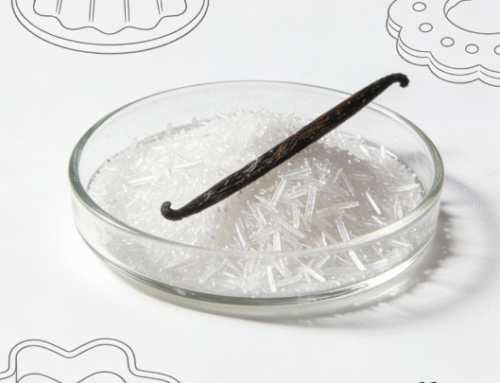What is Acesulfame K?
Acesulfame K, also known as sweetener acesulfame potassium, is a popular artificial sweetener that is often used in sugar-free and low-calorie products. It is about 200 times sweeter than sugar and is often found in soft drinks, chewing gum, baked goods, and other processed foods.
But is Acesulfame K bad for you? This question has been widely debated, and in this article, we will explore the potential acesulfame K side effects, its safety, and how it compares to other sweeteners like aspartame.
Is Acesulfame K Bad for You?
The Safety of Acesulfame K: What You Need to Know
Acesulfame K has been the subject of numerous safety studies and is approved by major food safety organizations, including the FDA (Food and Drug Administration) and the European Food Safety Authority (EFSA). These agencies have deemed it safe for consumption within the acceptable daily intake (ADI) limits, which is 15 milligrams per kilogram of body weight.
While acesulfame K cancer risk is a common concern, research has not conclusively linked Acesulfame K to cancer or other severe health risks. Several animal studies have shown that even at high doses, Acesulfame K does not cause tumors or other health problems.
The Potential Side Effects of Acesulfame K
Although Acesulfame K is considered safe by regulatory bodies, some individuals may experience mild side effects of Acesulfame K, such as:
- Digestive issues: Some people may experience bloating, gas, or an upset stomach after consuming products containing Acesulfame K.
- Headaches: While rare, a small number of people have reported headaches after consuming foods or drinks with Acesulfame K.
- Allergic reactions: Although extremely uncommon, allergic reactions to Acesulfame K, such as skin rashes or itching, may occur in sensitive individuals.
It’s essential to monitor your body’s response and consult a healthcare provider if you experience any unusual symptoms.
Acesulfame K vs. Aspartame: Which Is Better?
Aspartame vs. Acesulfame K: A Comparison of Two Popular Sweeteners
When it comes to artificial sweeteners, Aspartame vs. Acesulfame K is one of the most common comparisons. Both are used to replace sugar in various products, but there are key differences between them:
- Sweetness: Acesulfame K is approximately 200 times sweeter than sugar, while Aspartame is only about 200 times sweeter than sugar but breaks down under heat, making Acesulfame K the preferred option for baked goods and soft drinks.
- Health Concerns: Aspartame has been controversial due to its potential link to headaches and neurological concerns. Acesulfame K, on the other hand, is generally considered safe and does not have the same level of controversy surrounding its health effects.
- Calorie Content: Both Aspartame and Acesulfame K are zero-calorie sweeteners, making them popular choices for people looking to reduce calorie intake or manage weight.
For those seeking a safer alternative to aspartame, Acesulfame K might be the better option, although both are approved by health authorities and deemed safe for regular consumption.

Is Acesulfame K Safe During Pregnancy?
Acesulfame K in Pregnancy: What You Should Know
Pregnancy brings about many dietary restrictions, and many expectant mothers wonder, “Is Acesulfame K safe during pregnancy?” According to current research and guidelines from the FDA, Acesulfame K is considered safe for pregnant women when consumed within the acceptable daily intake levels. The compound is not absorbed into the bloodstream but is instead excreted through the urine, meaning it doesn’t accumulate in the body.
However, it is always best to err on the side of caution and consult your doctor before consuming any artificial sweeteners during pregnancy, especially if you are concerned about potential risks. Most experts suggest limiting intake of non-essential substances during pregnancy.
The Benefits of Acesulfame K: Why It’s So Popular
Why Choose Acesulfame K as Your Sweetener?
Acesulfame K is used as a sugar substitute for its many benefits:
- Zero Calories: It provides the sweetness of sugar without the calories, making it an ideal choice for weight management.
- Heat Stability: Acesulfame K remains stable at high temperatures, unlike some other artificial sweeteners, making it perfect for cooking and baking.
- Diabetic-Friendly: As Acesulfame K does not raise blood sugar levels, it is often included in sugar-free and diabetic-friendly products.
- Long Shelf Life: Acesulfame K has a long shelf life, making it an excellent ingredient in processed and packaged foods.
Acesulfame K in Everyday Products
You’ll find Acesulfame K in a variety of everyday products, including:
- Diet sodas and sugar-free drinks
- Sugar-free gum and mints
- Sugar-free baked goods and desserts
- Low-calorie yogurts and ice cream
- Chewing gum and candy
It’s important to read product labels to identify Acesulfame K in the ingredient list, especially if you are trying to avoid artificial sweeteners for personal health reasons.
Conclusion: Is Acesulfame K Right for You?
Acesulfame K is a widely used artificial sweetener that offers numerous benefits, including its ability to provide sweetness without the calories, its stability under heat, and its lack of impact on blood sugar levels. Is Acesulfame K bad for you? For most people, it is not. It is considered safe by health authorities, though some individuals may experience minor side effects.
However, if you have concerns about acesulfame K cancer risks, or if you’re pregnant or nursing, it’s best to consult with a healthcare provider before incorporating Acesulfame K into your diet.
For those seeking sugar substitutes or creating products for the growing health-conscious market, Acesulfame K offers an effective, safe alternative. Contact us today to learn more about Acesulfame K and how it can benefit your business or health.





Leave A Comment